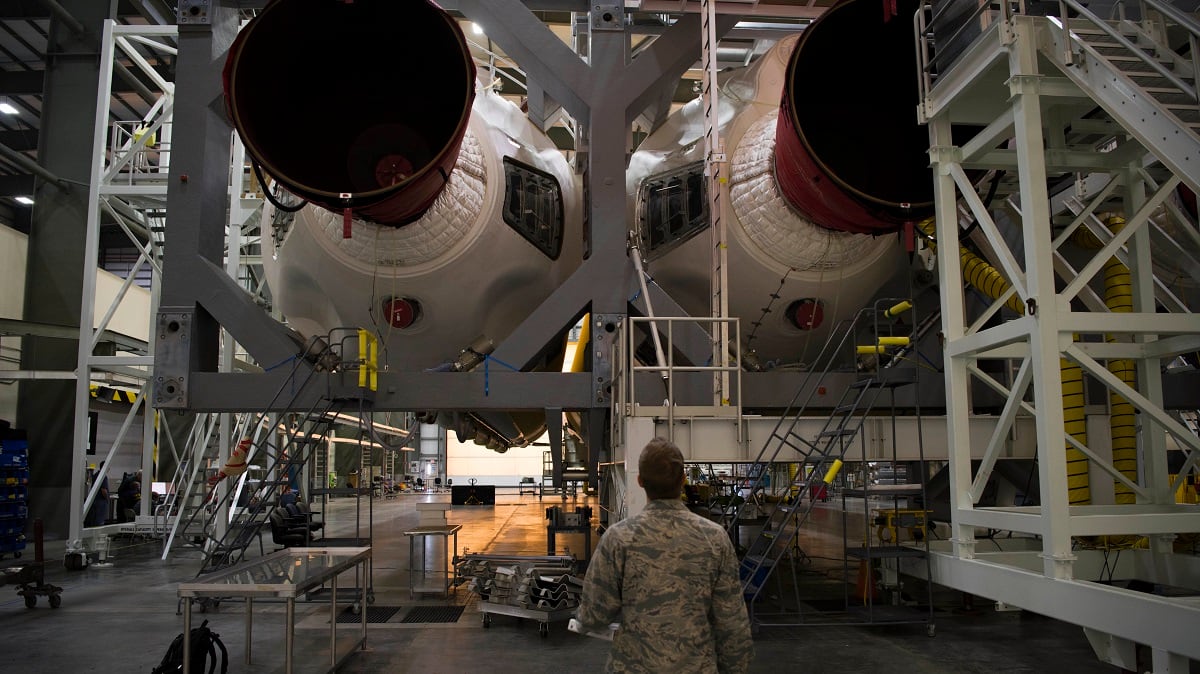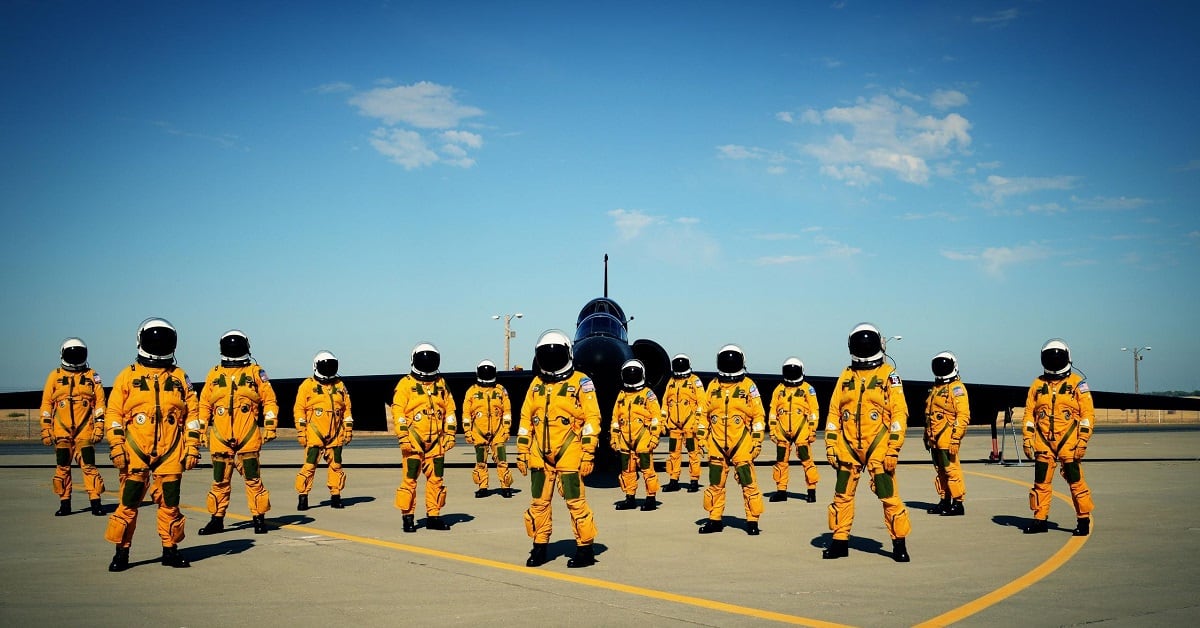Russian diplomats and politicians are promising repercussions if President Donald Trump’s order to build a U.S. space force is met, citing a treaty banning nuclear weapons in outer space.
"Militarization of outer space is the path to disaster,” Victor Bondarev, head of the Russian Parliament’s Upper House Committee on Defense and Security, told state media Tuesday.
”Let's hope the American political elite still have the remnants of reason and common sense,” Bondarev said. “But if the United States withdraws from the 1967 treaty banning nuclear weapons in outer space, then, of course, not only ours, but also other states, will follow with a tough response aimed at ensuring world security.”
Bondarev appeared to be referencing the 1967 Outer Space Treaty, one of several “non-armament” treaties that sought to prevent “a new form of colonial competition” in the cosmos, according to the U.S. State Department’s archives.
Bondarev’s warning comes after Trump directed Pentagon leadership to set up a sixth, space-oriented branch within the U.S. military.
RELATED

“When it comes to space, too often, for too many years, dreams of exploration and discovery were really squandered by politics and bureaucracy, and we knocked that out,” Trump said Monday at a meeting of the National Space Council, according to a White House pool report.
The president cited China and Russia as competitors that the United States must return to outpacing in space exploration.
“We don’t want China and Russia and other countries leading us. We’ve always led. We’ve gone way far afield for decades now,” Trump said.
Leadership within the Pentagon and Air Force have appeared mostly opposed to the idea of a separate space force, citing budget constraints and possible impediments to the Air Force’s own ability to wage war.
Russian Foreign Ministry spokeswoman Maria Zakharova also criticized the formation of an American space force Wednesday, according to state media.

"What makes this piece of news most alarming is the purpose of the instruction was described in very clear terms — dominance in space,” Zakharova said.
"Naturally, we keep the closest watch on Washington’s intentions and analyze the likely effects," she added. "A military buildup in space, in particular, after the deployment of weapons there, would have destabilizing effects on strategic stability and international security.“
While Russia does have a branch of the military described as "space forces," their activities are "purely defensive," the spokeswoman said.
Russian Space Forces are a branch of the larger Russian Aerospace Forces, and provide advanced missile defense services. The units historically incorporated under the Russian Space Forces operate radars and satellites involved in early-warning systems, according to a 2002 article archived by Stanford University.
The branch appears to be comparable to U.S. Air Force Space Command.
"Our country is not interested in tackling any tasks in space with the use of attack weapons,” Zakharova said.
And while Russian officials deny any militarization of space on their end, there have been concerns in the United States that Russian development of hypersonic glide missiles could pose a space-borne threat to the United States.
The glide vehicle could allegedly fly an arced trajectory high into the atmosphere, near or into space, atop an intercontinental ballistic missile, thereby avoiding existing missile defense systems, according to a March speech by Russian President Vladimir Putin.
Defense News reporter Valerie Insinna contributed to this report.
Kyle Rempfer was an editor and reporter who has covered combat operations, criminal cases, foreign military assistance and training accidents. Before entering journalism, Kyle served in U.S. Air Force Special Tactics and deployed in 2014 to Paktika Province, Afghanistan, and Baghdad, Iraq.




